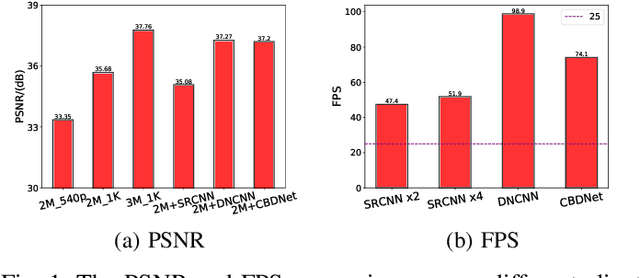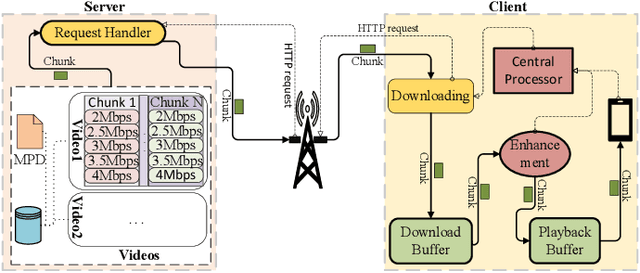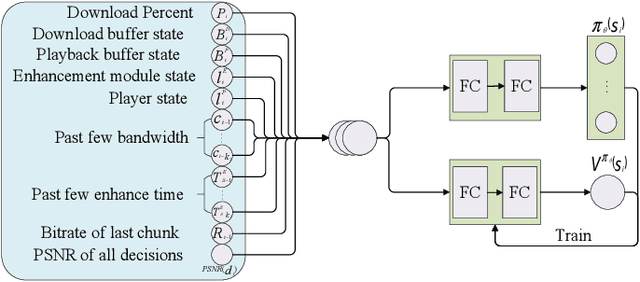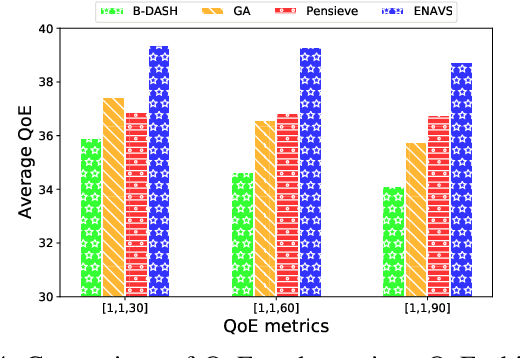Enhancement or Super-Resolution: Learning-based Adaptive Video Streaming with Client-Side Video Processing
Paper and Code
Jan 20, 2022



The rapid development of multimedia and communication technology has resulted in an urgent need for high-quality video streaming. However, robust video streaming under fluctuating network conditions and heterogeneous client computing capabilities remains a challenge. In this paper, we consider an enhancement-enabled video streaming network under a time-varying wireless network and limited computation capacity. "Enhancement" means that the client can improve the quality of the downloaded video segments via image processing modules. We aim to design a joint bitrate adaptation and client-side enhancement algorithm toward maximizing the quality of experience (QoE). We formulate the problem as a Markov decision process (MDP) and propose a deep reinforcement learning (DRL)-based framework, named ENAVS. As video streaming quality is mainly affected by video compression, we demonstrate that the video enhancement algorithm outperforms the super-resolution algorithm in terms of signal-to-noise ratio and frames per second, suggesting a better solution for client processing in video streaming. Ultimately, we implement ENAVS and demonstrate extensive testbed results under real-world bandwidth traces and videos. The simulation shows that ENAVS is capable of delivering 5%-14% more QoE under the same bandwidth and computing power conditions as conventional ABR streaming.
 Add to Chrome
Add to Chrome Add to Firefox
Add to Firefox Add to Edge
Add to Edge